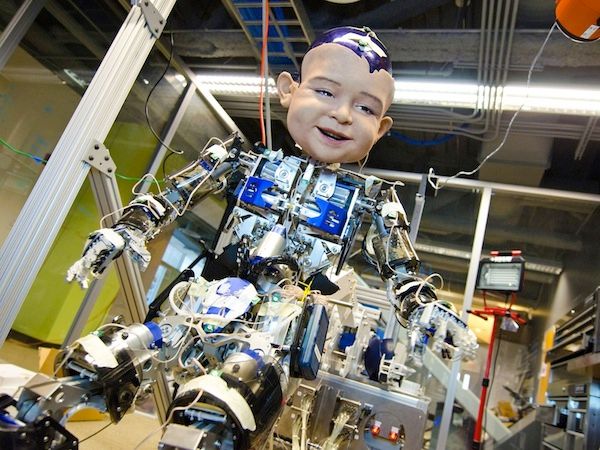If we talked about nothing else in 2013 -- and, all right, 2012, too -- we talked about the question of whether technology is going to take all our jobs. This latest surge of the age-old debate seems to have abated, for now, with the anti-robot contingent in America somewhat mollified by the promise that additional automation may be the one advance that allows for manufacturing jobs to return from overseas and relieves humans of the most dangerous and unpleasant tasks. Theoretically, the robotic gospel goes, that talent is then freed up for more fulfilling and productive work. (Hint: The more "creative" and "social" you are, the more likely you are to survive.)
Either way, it's worth looking at the different ways automation began rendering new classes of jobs obsolete this year.

Amazon's new robots don't go on strike. (Kiva Systems)
1. The people who mail stuff
Back in 2012, Amazon acquired Kiva Systems, a maker of robots that can be programmed to pick up online orders in a warehouse and shuttle them to their departure points. The company now has 1,382 of the machines in three fulfillment centers, which means it eventually may not even have to hire the tens of thousands of temp workers it brings on for the busy holiday season. And if you had any doubts that Amazon could eventually do the same with flying drones, well, let this be a lesson. (Amazon chief executive Jeffrey P. Bezos owns The Washington Post.)

Burger to go, no human needed. (Momentum Machines)
2. The people who reheat pre-cooked food
The nationwide fast-food strikes brought dire warnings from restaurant industry-backed researchers that if line cooks cost too much, they could easily be replaced by robots. That hasn't quite happened yet, but at least one company is working diligently to make it possible. It's reasonable to believe that McDonalds -- which is already replacing cashierswith touch screens in Europe -- would jump at the chance.

American Giant's offerings, available on a website near you. (American Giant)
3. The people who sell clothes
E-commerce has been steadily eating away at brick-and-mortar stores for years now, but what's been cropping up more recently is a breed of business that sees taking retail out of the picture as a point of pride. American Giant, for example: The purveyor of basic, high-quality clothing makes its stuff just outside San Francisco, which it can do affordably because it sells to in-the-know urban sophisticates purely online, skipping the American Apparel-style marketing blitz altogether. That may mean you can get a high-quality, U.S.-made hoodie for a competitive price. It also means that the people who might otherwise have sold it to you don't have jobs.
4. The people who stock shelves and return shopping carts
Not all labor-saving innovations are high-tech. The discount supermarket Aldi -- which is owned by the same corporate parent as the more bourgeois Trader Joe's -- keeps payroll down by requiring a 25-cent deposit for shopping carts so employees don't have to return them, and stocking shelves with boxes full of goods rather than placing the individual items in neat rows. Again, great for shoppers on a budget -- at the cost of employment.
5. People who drive trucks
Autonomous vehicle technology is accelerating, and for now, is focused on passenger vehicles. But the real labor shortage is in long-haul trucking, and as my colleague Brian Fung pointed out, that's a job that might be more safely filled by a remotely-controlled robot that never gets tired or lost. Which just means that the 5.7 million people who do the job now will have to find a new way to make a living.

The human-less tractor. (Autonomous Tractor Company)
6. People who operate farm equipment
The history of agriculture has been one long tale of automation, to the point where almost nobody works on farms in America anymore. The exception was supposed to be people who operated the machines that replaced people who tilled the soil and harvested the crops by hand. But even they're not safe anymore, with the advent of tractors that can be piloted around the fields by computer or even programmed with the right coordinates and set loose, like a gigantic dirt-treading Roomba.
7. The people who make iProducts
After years of close scrutiny for the working conditions in its factories, Foxconn -- which makes most of Apple's computers, phones, and tablets -- decided to swap people out for machines as much as possible. The process hasn't been as quick or as easy as anticipated, but with wages rising in China, Foxconn has little choice but to keep cranking out the one-million-strong army of "Foxbots" it promised back in 2010.
8. The people who do low-level lab work
In North Carolina's Research Triangle Park, a company called LabCorp is hard at workdeveloping machines to sort and split blood samples, which is just one of hundreds of thousands of menial laboratory jobs that pay decent money but could more efficiently be done by robots.
We may be able to add bartenders next year, but at this point, it still seems that man has an advantage over machines in making a decent Manhattan.
